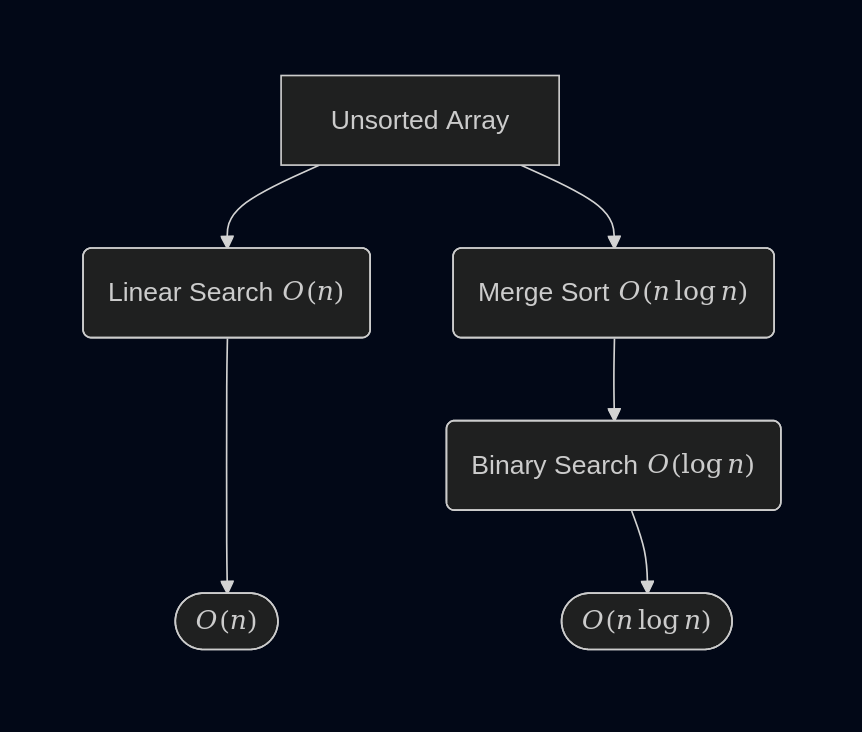Succeeds: sorting
Summary
Comparison based
- bubble sort
- selection sort
- insertion sort
- merge sort
- quick sort
Non-comparison based
- counting sort
- radix sort
Concept
In-place sorting
- only require
- exclusively using swap
Stable sorting
- relative order of elements with the same value is preserved
- using
<instead of<=when determining when a swap should occur
Performance
- to sort in non-decreasing(ascending but allowing for duplicates) order
| Random | Sorted Non-decreasing | Sorted Non-increasing | Almost Sorted Non-decreasing | Almost Sorted Non-increasing | Many Duplicates | |
|---|---|---|---|---|---|---|
| Optimized Bubble Sort | ||||||
| Selection Sort | ||||||
| Insertion Sort | ||||||
| Merge Sort | ||||||
| Quick Sort | ||||||
| Randomized Quick Sort | ||||||
| Counting Sort |
bubble and insertion sort are not entirely useless; if we know that the array will already be mostly sorted, they may be faster then merge/quick sort
Unsorted vs Sorted arrays
- sorting makes the array easier to work with
| Application | Unsorted | Sorted |
|---|---|---|
| search | linear search, | binary search, |
| min/max | linear search, | first and last index, |
| kth smallest/largest | linear search, quickselect, | k and (last - k) index, |
| duplicates | nested loops, | duplicates are adjacent, |
| counting repititons | hash table | duplicates are adjacent, |
| set intersection/union (without repitition) | nested linear search, | nested binary search, merge from merge sort, |
| two sum | nested loops, | two pointer approach, |
| count within range | hash table | two pointer approach, |
Application
Swap
java
private static void swap(int a[], int i, int j) { // swap array elements i and j
int temp = a[i]; // O(1) space
a[i] = a[j];
a[j] = temp;
}
Search

sorting is not necessarily the best solution in all cases
Leetcode: Shortest Unsorted Continuous Subarray
- naive sort then check
java
int len = nums.length;
int[] sorted = Arrays.copyOf(nums, len);
Arrays.sort(sorted); // O(n log n)
int l = len, r = 0;
for (int i = 0; i < len; i++) { // O(n)
if (nums[i] != sorted[i]) {
l = Math.min(l, i);
r = Math.max(r, i);
}
}
return r - l >= 0 ? r - l + 1 : 0;
Minimum swaps to sort an array
- each cycle of
nelements takesn - 1swaps